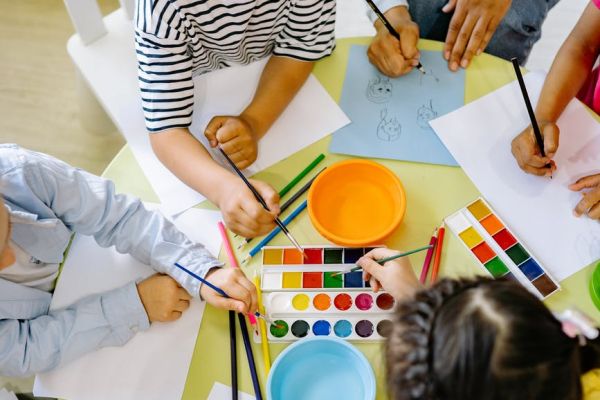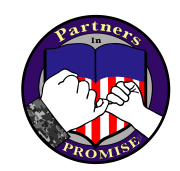
Partnering with Your Child’s Special Ed Teacher
| IEP
Growing up I always had this need to help others. I knew at an early age I wanted to be a teacher. I loved teaching others and working with younger children and was very fortunate to have my dream come true! I became a special ed teacher in 2006, teaching first and second-grade. I was blessed to work with many wonderful special education teachers. Our job was to make sure that our students were receiving services to best fit their education and socio-emotional needs.
Written by Kelley Siclari
Lesson Planning 101
For example, I worked with students who had ADHD and needed both educational and socio-emotional accommodations. The students I taught with ADHD benefited from extra time to complete assignments and wait time when answering questions. My co-teachers and I also created behavior plans that we broke up throughout the school day. We liked breaking it up this way to help our students be successful, earning their extrinsic/intrinsic rewards for following directions, staying on task and completing their assignments. There were a few behavior plans that included other goals like raising your hand to share what you have to say and/or keeping your hands to yourself.
I also tried to work on forming friends with others in the classroom. I liked using a weekly “lunch bunch” to teach my students how to behave socially and to form friendships with their peers. The students loved coming to my office each week to practice taking turns, asking others to play and how to handle the occasional “no I don’t want to play with you.”
Growing as a Special Ed Teacher

At the beginning of my career, I had a lot to learn, but as time went on, I felt like I really came to understand what it meant to be a special ed teacher. One of the things I learned over the years is that teachers in today’s schools have a lot more responsibility compared to when I was growing up. There were many times when I felt like I was a teacher, counselor, mentor, parent and advocate, in addition to simply teaching them the curriculum. I loved being able to support my students in so many areas, but it could also be very draining.
One thing I noticed that was a common theme during most of my parent meetings was how much parents needed guidance and/or help with their children at home. They supported and appreciated all that we were doing as a school, but they still lacked knowledge about how to best handle their children at home. I tried my best to share ideas with parents and gave them resources, yet I felt like there needed to be something more. This led me to offer parent education sessions at back-to-school nights and other events at school. As a special education team, we came together to create more parent education presentations to discuss ways the parents could help their students at home. We gave them tools such as reading checklists, a list of reading questions to be used when reading with their students, math games, and examples of behavior plans that could be used at home.
Years later, I started volunteering at the Howard County Parent Institute, where I taught parenting classes to help parents learn more about the importance of early education and brain development in children. I feel that these classes helped parents set their children up to be successful in school and beyond.
How Parenting Helps Me as a Special Ed Teacher
Now that I am a parent myself, I know just how important the school and home partnership is. According to an article on waterford.org, children whose parents are engaged in their education are more likely to: earn better grades in school, graduate from high school and/or college, develop self-confidence and motivation, and behave better in school.
Since becoming a parent of school-aged children, I try to keep my communication with their teachers as open as possible. I am not afraid to ask for help where and when it is needed. For example, my son has received speech and language services since the age of two. There was a time when he was dismissed from services, but I still had concerns that he was not making progress in the area of articulation. At the beginning of his kindergarten school year, I shared my concerns with his teacher who then followed up with the speech pathologist at school.
My gut was telling me that he still needed help and I was glad I asked for the teacher’s support because he qualified for speech and language services. Not all situations will work out the way you want them to, but it’s important to know that you shouldn’t be scared to speak up for your child. Always remember that as a parent/caregiver you know what they need the most.
Tips and Tricks from a Special Ed Teacher
Here are some lessons I have learned about the home and school relationship:
- Ask the teachers questions
- Remember the saying “there is no such thing as a dumb question”
- Speak up for your child if something in the classroom is not working for them
- If a classmate is bothering them at their seat; they can’t see the board; they need help academically, emotionally or behaviorally
- Volunteer in the classroom
- This is a great way to get a hands-on look at what your child is learning in the classroom. There are many parents who express to me that their child is so much different at home than at school. By volunteering in the classroom, the parent can see how the child interacts with their teacher and peers and get ideas on ways to work with their child at home.
- Get to know your children’s friends and their families
- I find this really helpful as a parent. I like getting to know the other families to give my children a chance to socialize with their peers outside of the classroom.
In my experience, if schools and families work together as a team, children in special education will be more likely to excel academically, socially and emotionally.
About the Author

Kelley Siclari has been a special ed teacher for over ten years. She has worked with students at both the elementary level and preschool level. She is a Marine Corps spouse and the mother of two wonderful children, one of whom has received special education services since the age of two for speech and language and occupational therapy. Kelley loves teaching and is passionate about educating parents on ways to support their children with special needs at home. Kelley is excited to join Partners in PROMISE’s writing team of experts so that she can advocate for students with disabilities as well as work with military families.





Leave a Reply